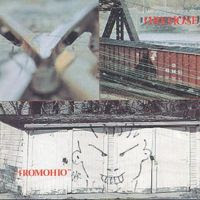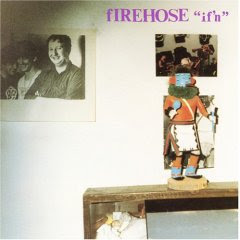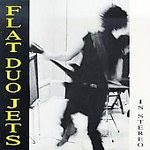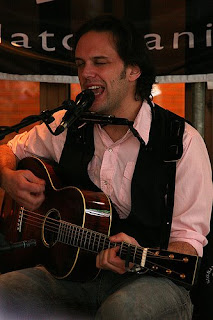
Album: Gin Blossoms, New Miserable Experience, 1992
Best Track: "Lost Horizons"
Lasting Memory: I spent a day in September 1992 building a bookcase in the backyard of the townhouse I was renting with four other guys. The weather was perfect, and the bookcase came out okay. I think a friend of mine still has that set of shelves. I must've heard "Hey Jealousy" played 13 times that day. And the song never wore out its welcome.
Looking back, I have to think it's a little incongruous to associate one of my few successful attempts at carpentry with a song from New Miserable Experience. Each of the 12 tracks on the Gin Blossoms' major-label debut is about drinking until your life is ruined or making an irreparable mistake in a romantic relationship. Most of the songs touch upon both themes.
New Miserable Experience, in short, is not a winners' album. It is not, by extension, an album for guys who build nice bookshelves.
But what else should listeners have expected? The band is named for a medical condition caused by chronic alcohol abuse. The album's title promises nothing promising, and any suspicion or hope that the phrase "new miserable experience" should be read with an implied wink and a nod is disabused by the first two verses and chorus of the first song on the first side of the album, "Lost Horizons":
The lost horizons I can seeThroughout New Miserable Experience, the music is mostly upbeat. I would almost describe the auditory as "rollicking," but I'd never type a word like that. And you never read it here.
Are filled with bars and factories
And in them all
We fight to stay awake
[Chorus]
Drink enough of anything
To make this world look new again
Drunk drunk drunk
In the gardens and the graves
She had nothing left to say
So she said she loved me
I stood there
Grateful for the lie
In contrast to the melodies, the lyrics are somber to the point of hopelessness.
Many bands employ this contrapuntal approach, of course. The Smiths come most immediately to mind in this regard. What sets the Gin Blossoms apart here is that there really is no humor, or even acceptance leading to accommodation, to be found. We can all laugh along with Morrissey when he delivers lyrics like "Spending warm summer days indoors/ Writing frightening verse/ To a buck-toothed girl/ from Luxembourg" or "I was looking for a job/ Then I found a job/ Heaven knows/ I'm misearable know," exactly what is one to do when confronted with the following chorus from the Gin Blossoms' "29"?
Some rides don't have much of a finishThe short answer is, "Take the lyrics at face value."
That's the ride I took
Through good and bad
And straight through indifference
Without a second look
The guy wrote wrote most of the songs for New Miserable Experience, Doug Hopkins, had been kicked out of the band for being a dysfunctional alcholic by the time the album got its national release. While Hopkins did not write "29,"--Gin Blossoms' guitarist Jess Venezuela did--the song captures Hopkins' mindset well. Hopkins committed suicide in December 1993. His humorlessness was no affectation, and he certainly laid out his problems for the world to hear over the course of a really remarkable album.
New Miserable Experience, then, is all art and no artiface. Shame that it took a young man's life, but it does deliver on what it advertises. The work of all bands and singers should do the same.
Fortunately, none of the other Gin Blossoms have had the misguided courage of Hopkins depressive convictions and are all alive and presumably well. Unfortunately, the band has become a county fair act. I wonder how songs like "Alison Road," being so essentially dark play as they are, play to nodding-off grandparents and 3-year-olds wired on cotton candy?
"So she fills up her sails with my whiskeyed breath." Indeed.
Up Next: The Godfathers, Birth, School, Work, Death, 1988








